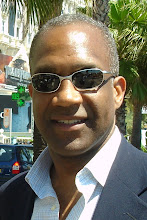 Several years ago, while teaching "Ethics and Moral Reasoning" in the U. S. Naval Academy's mandatory sophomore-level course of the same name, I heard a recently-retired three-star admiral say that while he would welcome lawyers in a room where decisions about air strikes were being made; he would exclude chaplains.
Several years ago, while teaching "Ethics and Moral Reasoning" in the U. S. Naval Academy's mandatory sophomore-level course of the same name, I heard a recently-retired three-star admiral say that while he would welcome lawyers in a room where decisions about air strikes were being made; he would exclude chaplains.Based on recent news reports, it seems the folks who were making decisions about the interrogations of suspected terrorists had the same idea as the admiral. (To read a New York Times newspaper article on the subject, click here.)
While acquiring legal, medical and psychological cover for interrogation methods that many -- if not most -- lawyers, physicians and mental health professionals consider both illegal and unethical; it seems the Bush administration, the U. S. Justice Department, and the Central Intelligence Agency were unwilling to consider the morality of how they "persuaded" our enemies to give-up information.
The admiral's comments were a candid admission that when God is in the room, people are compelled to behave themselves.
I am not saying that a chaplain -- in any way, circumstance, or form -- is God. However, clergy generally represent a standard that is higher than what is merely legal, even if all clergy (and I am speaking from observation and personal experience) fall short of that standard in their life and in their vocation.
The 17th Century French priest St. Vincent de Paul reportedly wrote or said that a man in a hurry misses the things of God. Clearly, in the aftermath of September 11, 2001, we were a hurried and a fearful nation. And while it is good that our houses of worship, for a time, were filled with people seeking solace, guidance, and strength, there is now ample evidence that other Americans were inviting everyone but God into the situation room.
The 17th Century French priest St. Vincent de Paul reportedly wrote or said that a man in a hurry misses the things of God. Clearly, in the aftermath of September 11, 2001, we were a hurried and a fearful nation. And while it is good that our houses of worship, for a time, were filled with people seeking solace, guidance, and strength, there is now ample evidence that other Americans were inviting everyone but God into the situation room.
The admiral referenced above explained that with the chaplain came inconveniences. For example, we might reason that there is acceptable risk in attacking terrorists who are in a building situated across the street from a school house -- unless our child is in the school house.
When God is in the room, the captor becomes the one captured; the strong consider the position of the weak; and the means to an end are considered as seriously as the end. At every level, the recognition of an authority greater than we reminds us that not everything that may be legal is right; and that just because we can do something, doesn't mean that we ought.




No comments:
Post a Comment